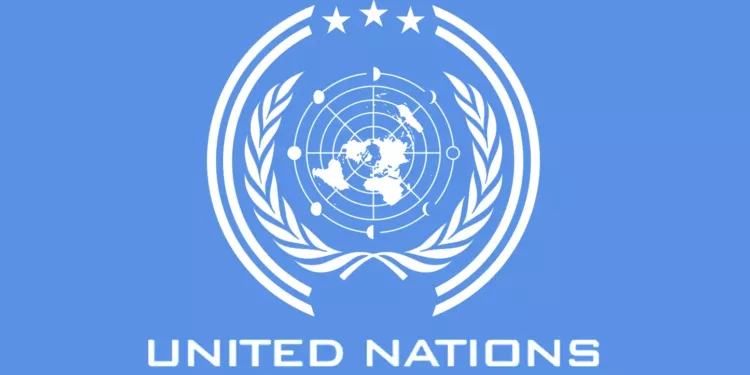The United Nations (UN) has expressed concern over demolishing resources in tackling the humanitarian crisis, calling on partners to support the vulnerable devastated by conflict and disasters.
Speaking in Yola at the World Humanitarian Day, the UN Resident and Humanitarian Coordinator in Nigeria, Mohamed Fall, said only a third of the required $306 million had been raised to address food insecurity and malnutrition in the affected Borno, Adamawa and Yone states.
He urged for concerted effort as severe malnutrition has severe consequences for children’s physical and intellectual development in BAY states.
He lauded humanitarian actors, adding that the event aims to raise awareness about the humanitarian crisis in Nigeria and find a collective way forward.
In his remarks, the Permanent Secretary in the Federal Ministry of Humanitarian Affairs, Abel Editan, assured that the ministry would always be on hand to lend all necessary support to development partners.
Deputy Governor of Adamawa State, Professor Kaletapwa Farauta, who represented Governor Ahmadu Fintiri, said Adamawa accommodates thousands of people who mainly fled from Borno State as a result of attacks by Boko Haram terrorists.
She said the government has always strived to provide homes and resources to internally displaced persons living in camps and with host families.
“We thank humanitarian workers for always leaving their comfort zone to be in troubled spots so that other people‘s troubles can be made less,“ Kaletapwa said.
As part of activities marking World Humanitarian Day, the UN agency, other partners, and the Federal Ministry of Humanitarian Affairs distributed relief items, mostly food and nonfood items, to IDPs who reside at the Malkohi IDP Camp in Yola.
A foremost philanthropist, Emmanuel Musa, who founded and gave charity through the Emnamu Foundation, advised the IDPs to be as independent as possible.
“You shouldn‘t see your situation as an opportunity to fold your arms and expect handouts from people and organisations. As much as possible, you should see what you may do towards self-sustenance,“ he added.
Jets Seizure: CSOs Call For Due Diligence In State Contracts
The Civil Society Legislative Advocacy Centre (CISLAC) and Transparency International Nigeria (TI-Nigeria) have called on state governors to prioritise due diligence and legal consultations in contract negotiations. This appeal comes after a French court recently seized three Nigerian presidential jets following a contract dispute between the Ogun State Government and the Chinese firm Zhongshan Fucheng Industrial Investment Co. Ltd.
In a statement signed by its Executive Director, Auwal Musa Rafsanjani, CISLAC/TI-Nigeria expressed grave concern over the escalating legal battle stemming from a 2007 agreement to develop the Ogun Free Trade Zone. Rafsanjani emphasised that the fallout from this poorly managed contract has resulted in significant financial losses and tarnished Nigeria’s international reputation.
“State governors and government officials must fully understand the legal and ethical complexities of international agreements before entering into them,” Rafsanjani stated. “Nigeria is already grappling with numerous socio-economic challenges, and the last thing we need is to be entangled in costly legal disputes that could have been avoided with proper due diligence.”
Rafsanjani criticised the federal government for allowing state governors to access loans without adequately addressing potential risks. He pointed out that personal interests often lead public officials into problematic agreements, drawing parallels to the notorious P&ID case.
“CISLAC/TI-Nigeria’s call serves as a reminder of the need for vigilance and ethical governance in handling international contracts to prevent severe repercussions from mismanagement,” he added.
“CISLAC and Transparency International have diligently monitored and advocated for global transparency and accountability, particularly since the initial arbitration order in the P&ID case in 2017, which mandated Nigeria to pay $6.6 billion in fines due to contractual breaches. This amount ballooned to $11 billion due to accrued interest,” Rafsanjani noted.
He continued, “During the legal battle in London to overturn this order, CISLAC and Transparency International collaborated with local and international organisations to demand a comprehensive investigation into all individuals implicated in sabotaging Nigeria’s interests. The prior administration’s failure to act on these calls was disheartening.”
“Thanks to the global advocacy efforts of CISLAC and Transparency International, Nigeria secured temporary relief through a UK court’s decision. CISLAC reiterates calls on President Bola Tinubu and anti-corruption agencies to prosecute all Nigerians and their accomplices, including former senior officials, who colluded with P&ID for personal gain.
CISLAC/TI-Nigeria’s statement reflects broader concerns about Nigeria’s management of international agreements and the severe consequences of neglecting due diligence. “As the country navigates this complex legal situation, it is crucial to remember the need for vigilance and ethical governance in contract negotiations,” Rafsanjani concluded.



